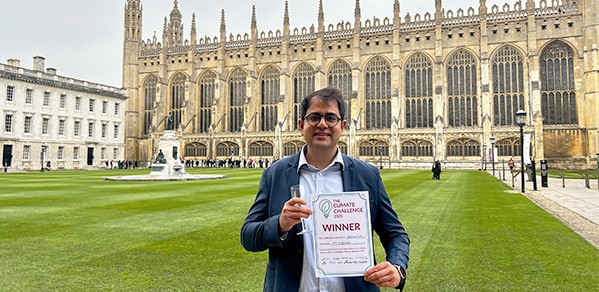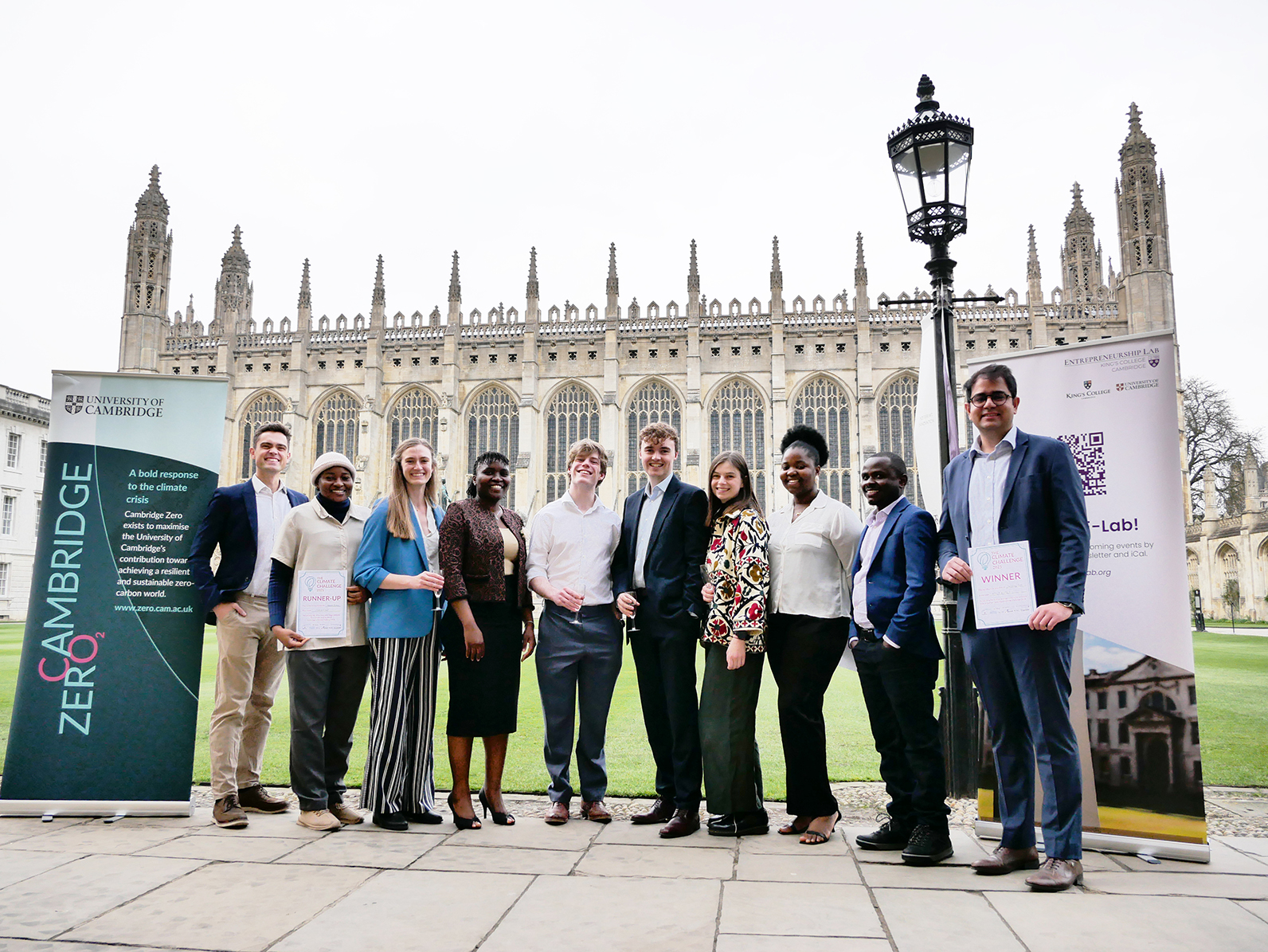
The team behind Neela Biotech, a company co-founded by early career researcher Dr Deepanshu Singh and final-year PhD student Friederike Nintzel, have won the 2025 Cambridge Zero Climate Challenge for developing a method that turns multiple waste streams into highly valuable chemicals such as sustainable aviation fuels.
The digestate and bio-chemicals derived from our process have applications in various other industries such as fertiliser, biofuels, industrial chemicals, coatings, bioplastics, animal nutrition etc.
Dr Deepanshu Singh
Neela Biotech was recognised by a panel of climate innovation experts for its advancements in synthetic biology, automation and AI. The team secured a £1,500 cash prize and have plans to incorporate the company to ensure a business plan can be taken forward.
Founded by Dr Singh, a researcher in sustainable aviation and Business Development Lead at the Aviation Impact Accelerator (AIA) – Whittle Laboratory, and Friederike Nintzel, who is studying synthetic biology at Cambridge, Neela Biotech is addressing aviation’s emissions challenge using a nature-inspired anaerobic digestion process whilst leveraging recent advances in synthetic biology and AI.
Their Controlled microbial upcycling (CMU) can convert a mixture of waste from municipal, agricultural and aquaculture sources into carbon-negative aviation fuel. Unlike traditional bio-sustainable aviation fuel (SAF), which often displaces food production because it is grown on arable land, CMU eliminates competition for food, land and water while reducing production costs.

Cambridge Climate Challenge finalists in the grounds of King's College, Cambridge. Dr Singh is pictured far right. Credit: Annie McKenzie
Aviation is the most emissions-intensive mode of transport, producing up to 50 times more emissions per passenger-kilometre than trains and five times more than cars. According to the International Energy Agency, the sector is significantly off track from achieving net zero by 2050.
“We are targeting the $391 billion global jet fuel market,” said Dr Singh. “Further, the digestate and bio-chemicals derived from our process have applications in various other industries such as fertiliser, biofuels, industrial chemicals, coatings, bioplastics, animal nutrition etc.”
He added: “The Cambridge Climate Challenge has been an incredible learning experience, particularly the insightful weekly sessions led by exceptional speakers.”
The Cambridge Climate Challenge is an eight-week innovation competition for early career researchers, designed to give young academics the skills to scale-up their own climate solutions into successful and impactful businesses.
“Our fifth Climate Challenge saw Cambridge students representing a range of disciplines, highlighting how we can all contribute towards a green future,” said organiser Will Crook, Student Engagement Coordinator at Cambridge Zero.
The judging panel included: Dr Nicky Dee, founder of climate-focused venture capital group Carbon13; Kamiar Mohaddes, Director and co-founder of the King’s Entrepreneurship Lab (E-Lab); Dr Tara Love, Chief Technology Officer and co-founder of Nanoplume; and James Cole, Chief Innovation Officer at the Cambridge Institute for Sustainability Leadership (CISL).
All prizes were sponsored by Moda Living, and the event was made possible by organisers Cambridge Zero and partners: Carbon13, Cambridge Enterprise, Maxwell Centre, Energy IRC, the CISL, King’s E-Lab and King’s College.
Adapted from a news article published on the University of Cambridge website – written by Annie McKenzie.

